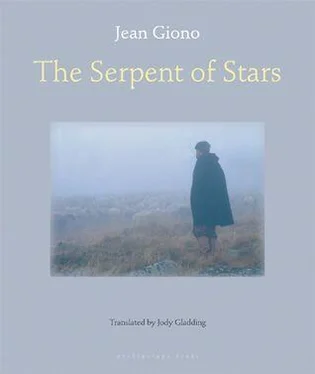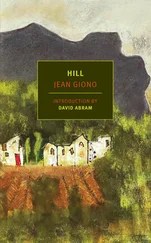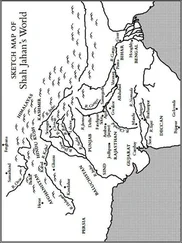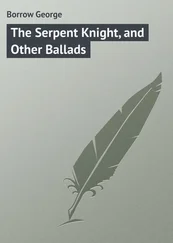Jean Giono
The Serpent of Stars
I first read The Serpent of Stars in France in 1998. First published in 1933, it was out of print at that time, but I found a copy of the fifth printing (1949) at a used book stand at the market in Apt. The pages were still uncut. I am deeply indebted to Elizabeth Deshays, first for recommending the book, and then for reading through and repairing my translation of it. I would also like to thank M. Dumas, of the Dumas Bookstore in Apt, for serving as consultant. It is to them I owe the following anecdote.
When the composer Darius Milhaud read this novel, he loved it, and curious about the extraordinary, unknown musical instruments described in it, he wrote to Giono to find out more about them. Giono wrote a laconic note back saying that he couldn’t tell him anything more about them, simply because he had made them up.
All the footnotes in this text are also Giono’s inventions. As translator, I’ve added none of my own.
To Professor Eduard Wechssler
Can your performance face the open fields and the seaside?
WALT WHITMAN
IT ALL BEGAN WITH CÉSAIRE ESCOFFIER. It all began that May day. The sky was smooth as a washing stone; the mistral had scrubbed it blue; the sun spurted out from all sides; things no longer had shadows; the mystery was there, against the skin; this wind of perdition tore words from the lips and carried them off into other worlds. Despite all that, “you did the fair.” You can hardly give up a fair in May. If rain threatens, you take along an umbrella. If this wind comes up, you hurl yourself into it like a swimmer, you thrash about like a mill with arms, you bellow out the prices, you spend the whole day with your eyes shut, your ears ruptured, as if in a sea, but even so, you do business, and in the evening, sheltered by the walls, you open your eyelids, burned by the salt and the wind. Your bag of coins, like something ripped from the sea bottom, is full of bits of grass and sand.
That was when I went looking for the shepherds. Usually I found them near the blanket merchant buying themselves what they needed for life on the plateaus. This time, I didn’t find their cart and the edge-toolmaker told me, “He didn’t come. He took cold in the mountain passes. We were all together at the Laragne fair. We left in the middle of the night. It got to him in no time at all. ‘It seems as though I’m breathing knives,’ he said to me. He’s up there at the inn by the road, Au Panier des Filles, do you know it?”
That took the wind out of my sails! No more shepherds! No more fair this time around! I had counted on today, hoping I might learn the rest of that epic, “The Evergreen Oaks”! It was as though I was in a dream and unable to think. I drew away into those sheltered alleyways: the Observantine and the Aubette where the wind makes more peaceful lakes.
There the honeysuckle on the houses barely moved, pools of silence and shadow slept in the curve of the walls. This was at street level beyond the wind’s reach, a country where you always have to be on your guard.
After a little while, in this bay between the grocery and the boat captain’s house, I saw gleaming on the cobblestones what looked like a stream of little stars. It ran under a large arbor of roses. I let myself get used to the darkness; the coolness and calm of the street poured into my open eyes like the good black water of sleep. At my feet, I saw a whole herd of gleaming pots, and the potter was looking at me.
There were olive jars, tea pots, water jugs, and a great paunch of sweaty black clay for the man to use. He had just finished drinking. He wiped his mustache. He was also made of clay.
FROM ALL sides, the sly day shifted about; and the mistral shook the sky like sheet metal.
In the middle of the pots, in a square marked off by cords of red wool, arranged in three rows, there were little pot-bellied pots, stuffed with newspaper. I thought of the honey from the hills and I said to the man, “You must give me one of those.”
“Are you in love?” he asked in response.
It reached me at the same time as his blue gaze, soft and amenable as underwater grass, and the sudden mystery of the day pure of shadows.
Should I say yes? No? How to find the truth in that!
I explained, “I’m married, and so. .”
He asked, “Is your wife sick?”
I quickly said no, because all of a sudden, I had understood. It all tied in: the alleyway resonant as a large flute, this diluted sun, this sky so thick that its color ran over the outline of the houses, this clay man gifted with speech: it was all a spell!
WE SEALED a good, strong friendship, not over a glass of anise at the Café de la Boscotte, but like that, without moving from our spots, him over there, me here on the other side of the pots and our looks exchanging between them more and more of his blue and my blue of friendship.
In the end, he stepped over all his mute clay, he reached out his tree root of a hand, all rough; he said, “If you have the time, come see me. Judging from what you were about to say, we’ll get along fine together. My name is Césaire Escoffier.”

HE HAD explained very clearly to me that he lived in Saint-Martin-l’Eau, that you first had to go to the village, then take a left after the threshing ground with all the bales of wheat, then climb to the spine of the Berre hut, then cross through the pine woods, then look for the bloody wound of his clay pit in the hill. When I reached the jostling rush of hills, my heart began to sink. Such waves of earth and spray of trees as far as the eye could see! A big ivy squatting in the hollow of the valley was gnawing the fleshless bones of a dead farm. It swung its heavy head. It tossed its green suckers in the grass; it went off in its slow desire, heavy with branches and black leaves, toward a groaning sheepfold. The earth was torn up by great claws; in other places, it was beaten and trampled like a wallow, but all along its width and length it retained the imprint of some beast heavier than the sky. Apart from that, there was no sign of a bird, no squeal of rats in the bushes, or that sound of a spring big snakes make when they flow sleepily through the grass. There was only the life of sap, but all of it so hot with life you felt that ferocious burning just by touching the light stem of a honeysuckle.
I am used to it, but I stood there facing it a good while, naked and cold. Finally, I got up my courage and I went down into the foam of the trees. By noon I was wandering lost, my throat on fire, in this prison of a valley that forms the base of a huge crater. Where to turn when, with each step, a tree moves, scolding you from behind? Three times already, separating the branches of apple trees grown wild, I had seen a solid wall of rock behind them. The sun had sucked out all my moisture. I was dry as dead wood hearing my skin crack, my brain doing red cartwheels in the blackness of my head, when I heard the sound of a three-tone flute, completely human, so very human, so human that with the rest of my moisture, I let out an “Oh!” full of hope. The flute fell silent. After a moment, it sounded further on, near the willows of an abandoned drinking trough. I went there. No one! Just water which leaped in fits and starts out of the wooden spout, water heavy with the smell of sulfur, water so thick with earth that it had filled its basin with yellow mud and was overflowing it.
The flute rang out from under the pines. In its direction I found an opening between two rocks. Struggling desperately with the serpents of an elder tree, I passed through. There were seeds, bits of flowers in my hair; a big sticky leaf clung to my cheek. But, emerging like that when you’ve lost hope, your courage quickly returns. The path was there beneath my feet; the flute rang out there ahead of me like a hunting dog’s bell. I walked, the trees withdrew from my road, the grass was cool against my legs, and all of a sudden I saw, above, on the hillside, a deep wound, dark from bleeding clay.
Читать дальше











